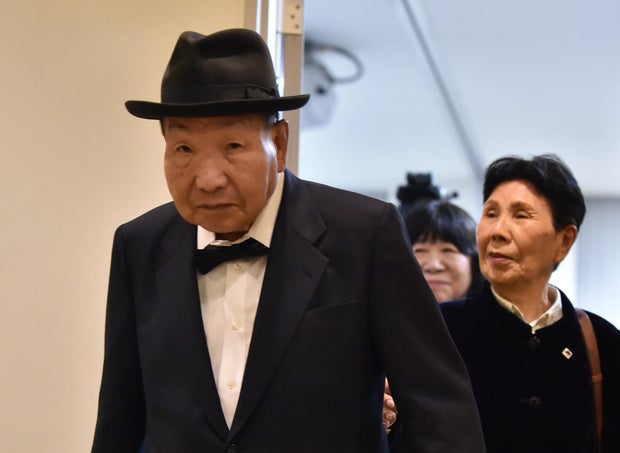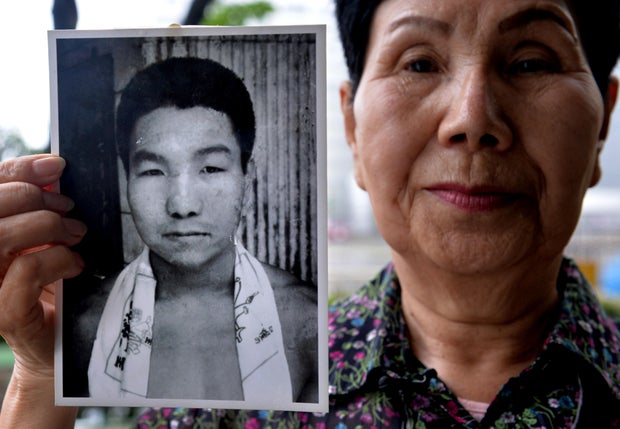World
World’s longest-serving death row inmate — an 88-year-old former boxer — acquitted of 1966 murders in Japan

An 88-year-old former boxer has been found not guilty in a retrial of a 1966 quadruple murder in Japan, ending his ordeal as the longest-serving death row inmate ever. A ruling by Tokyo’s Shizuoka District Court on Thursday exonerated Iwao Hamakada, who spent four decades on death row — an ordeal that began with his conviction and sentencing by the same court in 1968, Amnesty International said.
Hamakeda’s 91-year-old sister Hideko, who has long advocated for her brother’s acquittal, was seen celebrating outside the court after the verdict on Thursday.
KAZUHIRO NOGI/AFP via Getty Images
“Everyone, we won the acquittal, it’s all thanks to your support. Thank you for such a long time,” she said, addressing a cheering crowd.
The court acquitted Hakamada after ruling that vital evidence used to convict the former fighter had actually been planted long after the murders were committed, according to Japanese national broadcaster NHK.
Hakamada was initially convicted of murdering his employer at the miso soybean paste factory where he worked, as well as the man’s family. He was granted a retrial in 2014 and was released from prison after DNA evidence surfaced that called into question the reliability of his initial conviction.
Central to the retrial case was a debate over the color of purported bloodstains on five items of clothing found in a tank used for making miso over a year after the murders. Prosecutors had argued that the clothing belonged to Hamakada. The ex-boxer’s lawyers argued the evidence had been planted, and that stains on clothing would not stay red for such an extended period after the incident, according to NHK.
On Thursday, the judge presiding over the retrial agreed with the defense that bloodstains would not remain reddish on clothing after being soaked in miso paste for more than a year.
“The investigating authority added blood stains and hid the items in the miso tank well after the incident took place,” judge Kunii Koshi said. He added that other pieces of evidence had been fabricated as well, NHK reported.
Amnesty International said Hakamada’s initial conviction had also been based largely on a forced confession.
“During his first trial, Hakamada was convicted of the murder of his employer and his employer’s family, largely based on a forced ‘confession.’ He ‘confessed’ to the crime after 20 days of interrogation by police. Hakamada proceeded to retract the ‘confession’ during the trial, alleging that police had threatened and beaten him,” the human rights group said in a statement.
KAZUHIRO NOGI/AFP/Getty
Speaking outside the court Thursday, Hideyo Ogawa, Hakamada’s lead lawyer, welcomed the verdict.
“The court clearly said this important evidence had been fabricated, so now prosecutors no longer have any means to prove the conviction,” Ogawa said. “I believe this verdict will conclude the battle.”
Japan and the U.S. are the only members of the G7, an informal grouping of seven of the world’s biggest democratic, economical advanced nations, that still has the death penalty. Japan has not carried out any executions since July 2022, however, according to the U.S.-based Death Penalty Information Center.
On Tuesday, authorities in Missouri executed Marcellus Williams shortly after the U.S. Supreme Court rejected a request to delay the execution, despite questions over the evidence used in his murder conviction. He was one of two American prisoners put to death on Tuesday, the other being Travis James Mullis who was executed in Texas.
According to the Death Penalty Information Center, 16 prisoners have been executed in the United States this year in total.




)





